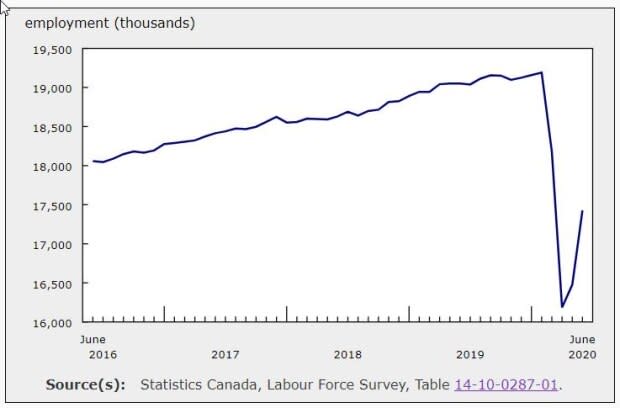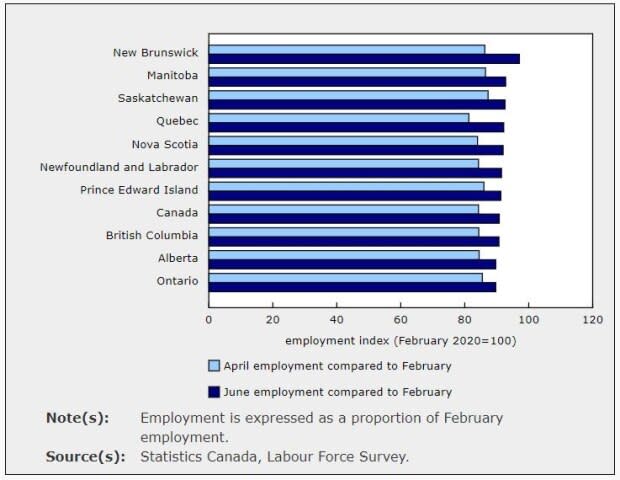Saskatchewan economy adds 30,000 jobs in June as businesses open up again: Statistics Canada
Saskatchewan added more than 30,000 new jobs in June as businesses began to open back up from the COVID-19 pandemic.
Saskatchewan's unemployment rate dipped to 11.6 per cent in June from a high in May of 12.5 per cent, according to a Statistics Canada report on Friday.
At the national level Canada added almost one million jobs in June.
The national jobless rate fell to 12.3 per cent, down from the record-high of 13.7 in May. There are still 1.8 million fewer jobs in Canada today than there were in February.
Jason Childs, an associate professor of economics at the U of R, said he was pleasantly surprised by the employment gains.
"To be gaining 30,000 jobs provincially and nearly a million jobs nationally is some unexpected good news, which is nice for a change," he said.

The growth in Saskatchewan was split between 22,000 full-time jobs and 10,000 part-time jobs.
Childs cautioned that the jobless rate in the province is still more than six per cent higher than it was at this time last year, when it was 5.2 per cent, and there still about 40,0000 fewer jobs than before the pandemic.
"[Some people] don't appreciate how deep the hole we're in is and this is not a hole we're going to get out of quickly," Childs said. "[Unemployment] has more than doubled from this time last year."
All those job losses have not been evenly distributed throughout the population.
Young workers are taking the brunt of the job losses in the province.
One in five people 15 to 24 years old are without a job, compared to 8.6 per cent of workers over the age of 25.

Unemployment among First Nations is 18.4 per cent and the Métis jobless rate is 17.3 per cent.
Childs said both those groups already have higher unemployment and they will have a harder time getting back in the workforce.
"People looking for that first job are going to have a really tough time right now because anything that opens up you're probably going to be competing with somebody who's got a lot more experience," he said.
The one sector hit hardest by the pandemic is food and accommodation, where an estimated 400,000 workers across the country are still without a job.

Childs said those jobs are dependent on consumer spending and tourism, and that people's financial habits have changed during the pandemic.
"I still think we're going to see a drag [on the economy] as we get what's called the Paradox of Thrift," Childs said.
"As people begin to save for their own protection we may see that drag on economic activity as consumption falls off."
He said people are beginning to cut back on 'luxuries' like going out to eat or grabbing a cup of coffee.
"That's a place where you can cut back fairly easy," he said.
"People are dealing with a massive amount of uncertainty right now and uncertainty breeds caution and doesn't breed spending."
Childs said no amount of fiscal stimulus is going to solve this crisis without consumer confidence.
"You need to get people back to a place where they feel comfortable and safe spending in order to return to the previous level of economic activity," he said. "Or we're just gonna have to get used to this."


